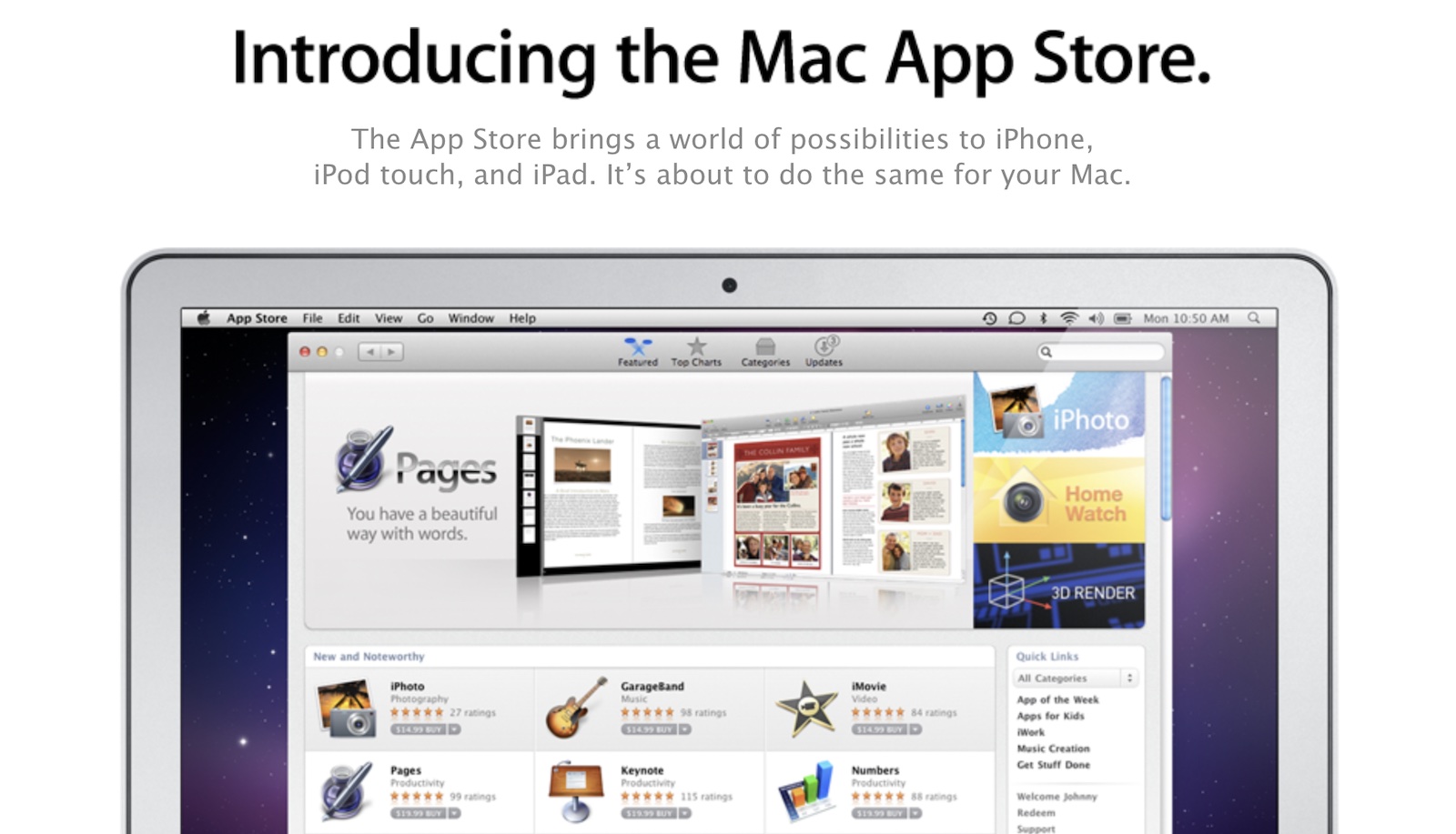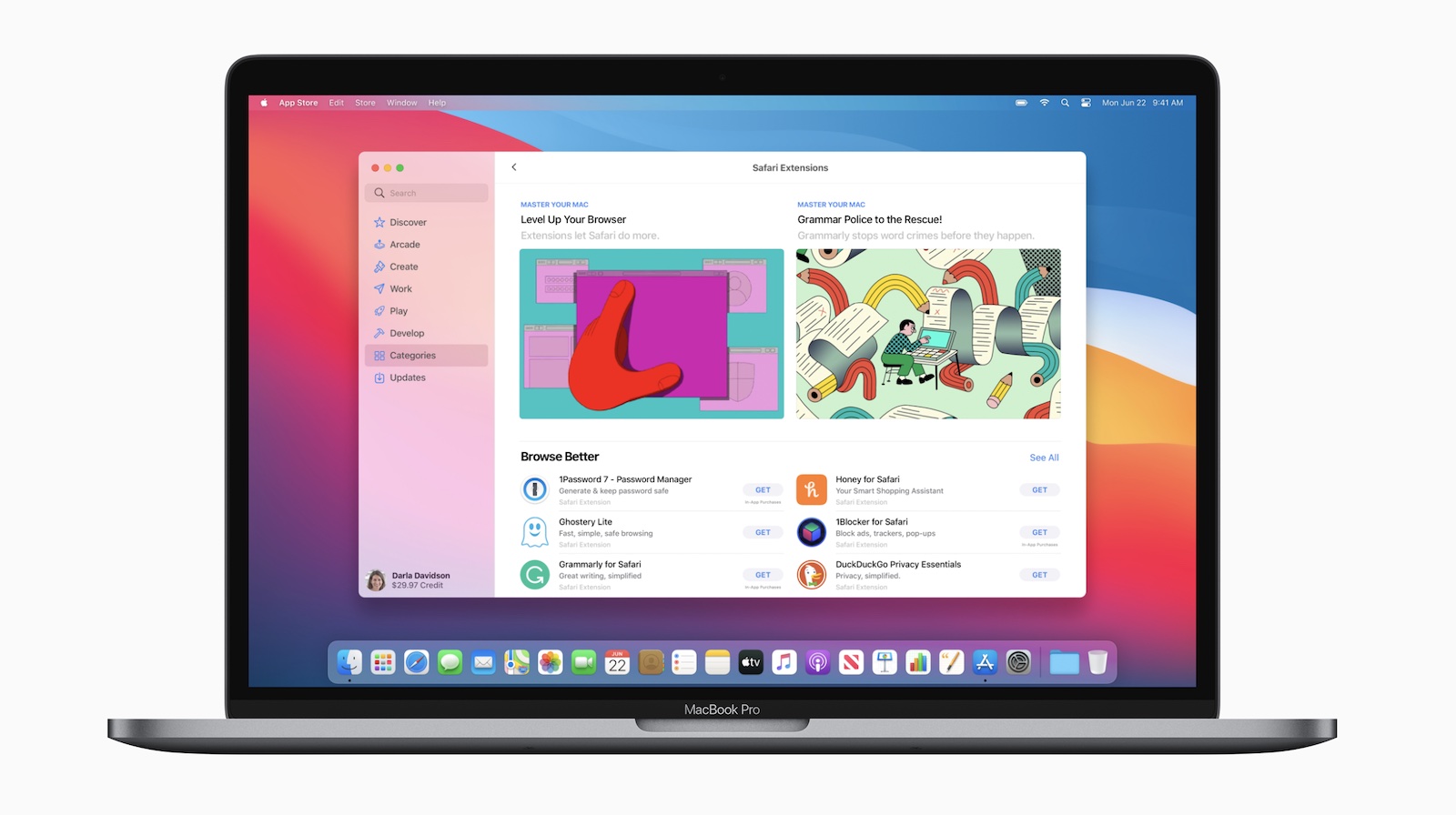
While the App Store launched on the iPhone in July 2008, the Mac App Store did not become available until January 6, 2011, when Apple released Mac OS X Snow Leopard version 10.6.6. Accordingly, today marks the 10th anniversary of the Mac App Store.

Apple announced that the Mac App Store was "open for business" in a press release timed with the launch. "With more than 1,000 apps, the Mac App Store is off to a great start," said Steve Jobs, Apple's co-founder and former CEO. "We think users are going to love this innovative new way to discover and buy their favorite apps."
Within its first year, the Mac App Store achieved a few milestones, topping one million downloads on its first day and 100 million downloads by December 2011.
All apps submitted to the Mac App Store are reviewed by Apple, and must be sandboxed, a security mechanism that helps protect user data from unauthorized access by apps. Developers can choose to distribute their software directly on the internet, without sandboxing, but all Mac apps must be notarized by Apple in order to run by default on macOS Catalina and later to ensure these apps are free of known malware.
In line with the App Store on other platforms, Apple collects a 30 percent commission from developers on the sale of paid Mac apps and in-app purchases tied to digital goods and services. However, Apple recently introduced a Small Business Program that reduces the App Store's commission rate to 15% for developers earning up to $1 million per calendar year in net revenue. Developers must enroll in the program to participate.
Since its inception, the Mac App Store has attracted its fair share of criticism from developers. Apple has addressed some of these complaints over the years by allowing developers to offer free trials via in-app purchase, create app bundles, distribute apps on multiple Apple platforms as a universal purchase, view analytics for Mac apps, respond to customer reviews, and more, but some developers remain unsatisfied with the Mac App Store due to Apple's review process, the lack of upgrade pricing, the lack of sandboxing exceptions for trusted developers, the absence of TestFlight beta testing for Mac apps, and other reasons.
In 2018, the Mac App Store received a major redesign as part of macOS Mojave, complete with a new "Discover" tab that highlights popular apps and games and features editorials from Apple. Apple also softened its rules surrounding sandboxing. Soon after these changes, Microsoft Office and Adobe Lightroom became available on the Mac App Store, and some popular apps like BBEdit and Transmit returned to the Mac App Store.

In 2019, with the release of macOS Catalina and Xcode 11, Apple made it possible for developers to easily create a Mac version of an iPad app. In most cases, adding macOS support to an iPad app is as simple as opening an Xcode project and clicking the Mac checkbox under General > Deployment Info, although some developers faced issues.
2019 also marked the launch of Apple Arcade, which has its own tab in the Mac App Store for discovering all of the games available as part of the subscription service.
Another advancement to the Mac App Store came in 2020, when Apple made iPhone and iPad apps available on Macs with Apple silicon, given that the M1 chip in Macs shares the same Arm architecture as A-series chips in iPhones and iPads. Developers can opt out of distributing their iPhone and iPad apps on the Mac App Store if they desire.
All in all, Apple has certainly made progress with the Mac App Store over the last 10 years, but some developers feel that further improvements are necessary if they are to embrace the storefront. The next decade of the Mac App Store begins now.
Article Link: Today Marks the 10th Anniversary of the Mac App Store

